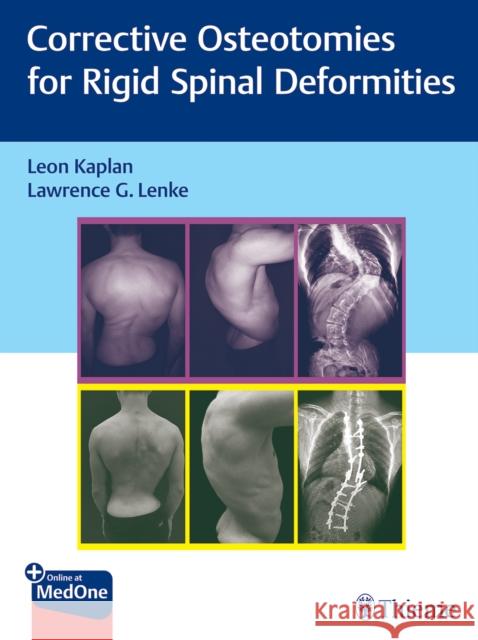Corrective Osteotomies for Rigid Spinal Deformities » książka
Corrective Osteotomies for Rigid Spinal Deformities
ISBN-13: 9783131730817 / Angielski / Mixed media product / 2023 / 316 str.
The ultimate guide and surgical manual for managing patients with rigid spinal deformities Despite attempts to detect and treat spine deformities early in younger and older populations, spine deformity surgeons encounter a wide array of complex spine pathologies in patients across the age and pathology continuum. Corrective Osteotomies of Rigid Spinal Deformities, edited by world-renowned spinal deformity specialists Leon Kaplan and Lawrence G. Lenke, features contributions from an impressive group of global experts. The superbly written compendium highlights inherent challenges of managing rigid spine deformities and provides a wide array of safe and optimal treatment solutions. Thirty-four chapters encompass surgical and nonsurgical management strategies for congenital, neuromuscular, syndrome-associated, infection, and neoplasm-related rigid spinal deformities. Special topics include secondary correction, pitfalls and difficulties, revision surgeries, and surgical and trauma-related neurological complications. New technologies are covered, including computer-assisted robotic surgery, evaluation and treatment of spinal tuberculosis in adults and children, and biological aspects that enhance spinal fusion. Throughout the text, authors share firsthand pearls gained over many decades of delivering surgical care. Key Highlights Classification, definition, diagnostic imaging, decision-making, rationale, indications, contraindications, planning, and postoperative management Step-by-step methodology for treating rigid deformities, including anterior, posterior, and combined approaches Anesthesiological aspects of spine correction in different stages of surgery and the importance of spinal neuromonitoring Reader-friendly algorithms, full color photographs, and radiographic images enhance understanding of underlying pathologies and treatment strategies This is an indispensable diagnostic and surgical manual for advanced spine surgeons who specialize in correcting rigid spinal deformities in pediatric and adult patients. Spine surgery residents and fellows will also benefit from reading this comprehensive resource.











